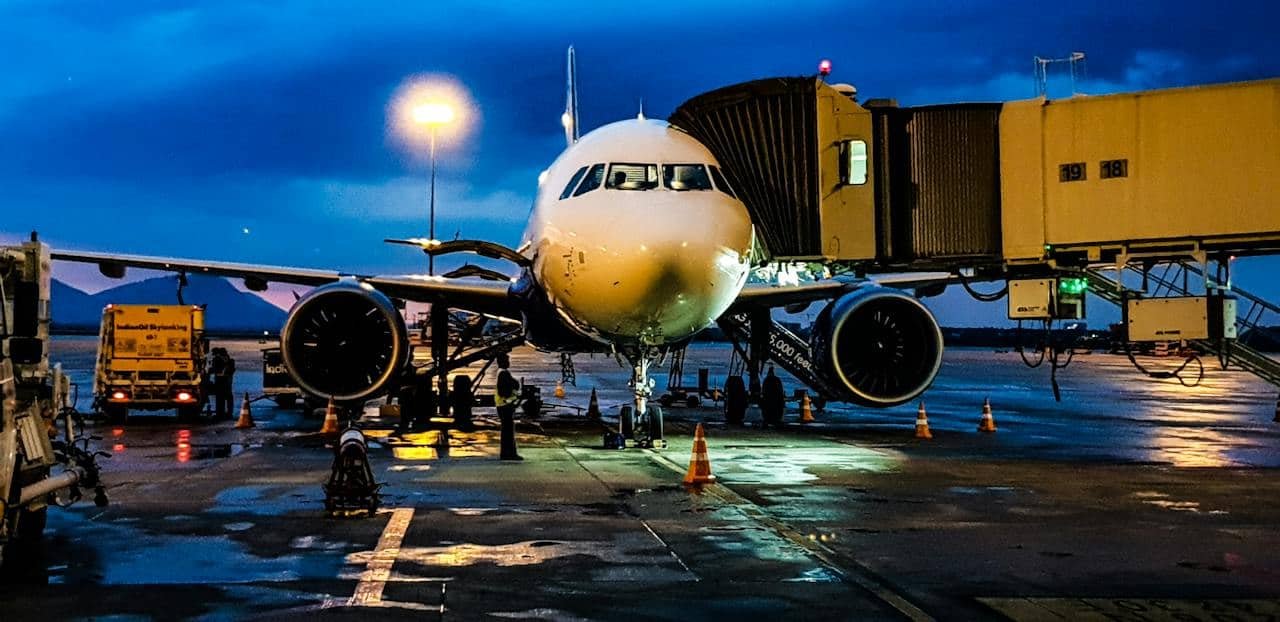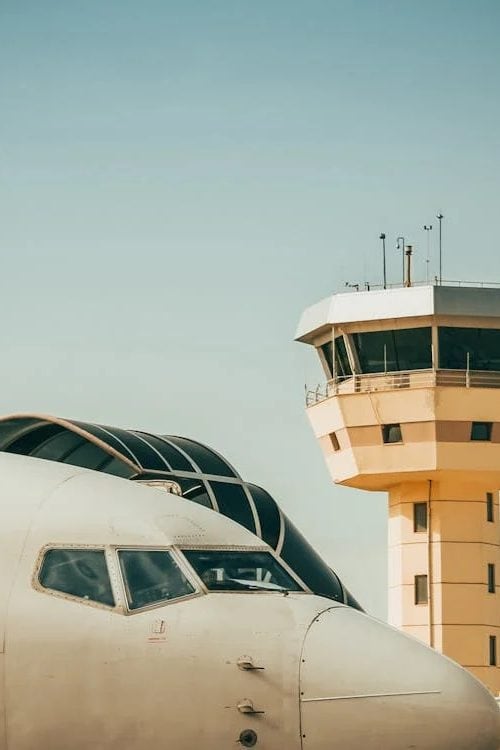Aviation fuel suppliers play a vital role in the aviation industry. They are responsible for providing the fuel that powers commercial and private aircraft around the world. Aviation fuel is a major cost for airlines and other aviation businesses, accounting for up to 30% of total operating expenses (Source: IATA). As a result, aviation fuel suppliers play a key role in helping airlines and other aviation businesses reduce costs.
Impact of Fuel Prices on Aviation Costs
The aviation industry is a global powerhouse, connecting people and goods across vast distances. However, this industry is also heavily reliant on fuel, making it particularly vulnerable to fluctuations in energy prices.
As fuel prices escalate, airlines are faced with a challenging dilemma: They can either absorb the increased costs, reduce their profit margins, or pass on the additional expenses to passengers, potentially dampening demand and impacting ticket sales. This delicate balancing act between financial viability and customer satisfaction poses a significant challenge for airline management.
The implications of rising fuel prices extend beyond airlines to encompass the entire aviation ecosystem, including aircraft manufacturers, maintenance providers, and airport operators. As fuel costs rise, these businesses may face increased pressure to streamline operations, optimise resource allocation, and explore alternative energy solutions to remain competitive and resilient in the face of these economic pressures.
In addition to the direct impact on operating costs, rising fuel prices can also indirectly affect aviation businesses through various channels. For instance, higher fuel costs can contribute to increased insurance premiums, as insurers factor in the elevated risk associated with more expensive fuel-related incidents. Additionally, rising fuel prices can impact the aviation industry’s ability to invest in new technologies and infrastructure, potentially hindering innovation and slowing the pace of progress.
Impact on airlines
Rising fuel prices can force airlines to raise ticket prices, cut costs in other areas, or even ground flights. In 2008, for example, when oil prices spiked to over $140 per barrel, many airlines were forced to raise ticket prices and cut costs in order to stay profitable. Some airlines even declared bankruptcy.
Impact on private jet operators
Rising fuel prices can also have a significant impact on private jet operators. Private jet operators typically charge their customers by the hour, and so rising fuel prices can lead to higher hourly rates. This can make private jet travel less affordable for some customers.
Impact on cargo airlines
Rising fuel prices can also have a significant impact on cargo airlines. Cargo airlines typically charge their customers by the weight, and so rising fuel prices can lead to higher shipping costs. This can make cargo transportation more expensive for businesses.
How to mitigate the impact of fuel prices
Aviation businesses have a variety of options to consider to reduce the effects of fuel costs.
These include:
- Hedging fuel prices: Airlines and other aviation businesses can hedge fuel prices by locking in prices for future deliveries. This can help to protect businesses from volatility in fuel prices.
- Improving fuel efficiency: Airlines and other aviation businesses can also improve fuel efficiency by using more fuel-efficient aircraft and by flying more efficient routes.
- Passing on costs to customers: Airlines and other aviation businesses can also pass on the cost of rising fuel prices to their customers by raising ticket prices or shipping rates. It is of paramount importance to take into account that passing on costs to customers can have a negative impact on demand. If ticket prices or shipping rates become too high, customers may choose to travel less or ship less cargo.
- Work with aviation fuel suppliers: They offer competitive fuel prices by negotiating with suppliers, pooling volumes, and using hedging strategies. They help airlines and aviation businesses with fuel costs by providing discounts, payment plans, and other financial assistance.
How Aviation Fuel Suppliers Reduce Costs
There are a number of ways that aviation fuel suppliers can help businesses reduce costs.
These include:
- Offering competitive fuel prices: Aviation fuel providers can leverage supplier negotiations, volume pooling, and hedging techniques to deliver competitive fuel prices to their customers.
- Providing value-added services: Aviation fuel suppliers can provide value-added services such as fuel planning and routing, overflight and landing permits, and flight support services. These services can aid businesses in enhancing their efficiency and minimising their expenditure on their fuel operations.
- Eliminate the hassle of organising your own refuelling: Aviation fuel suppliers handle the entire refuelling process, from scheduling and coordination to on-site refuelling. This frees up your time to focus on other important aspects of your business.
- Expertise in fuel procurement: Aviation fuel suppliers have expertise in fuel procurement. They can help businesses negotiate the best possible fuel prices and develop fuel hedging strategies to protect themselves from price volatility.
- Receive unwavering support from a dedicated fuel team: Aviation fuel suppliers provide personalised service and support to ensure that your refuelling needs are met efficiently. They will search for the best aviation fuel price for your flight, saving you both time and money.
Flightworx: A Leading Aviation Fuel Supplier
At Flightworx, we pride ourselves on being a leading aviation fuel supplier, dedicated to helping our clients navigate the complexities of fuel management. Our flagship offering, Fuelworx, is more than just a fuel price comparison portal. It provides free quotes from a vast network of over 100 fuel suppliers globally, enabling businesses to make informed decisions and select the most cost-effective fuel solutions.
Our expertise in fuel procurement is extensive. We actively assist businesses in negotiating the best possible fuel prices and developing robust fuel hedging strategies. This approach is crucial in protecting against the unpredictability of fuel price volatility. At Flightworx, our commitment goes beyond transactions; we focus on delivering unparalleled customer service, aiming to significantly reduce fuel costs and enhance the profitability of our clients.
Beyond Fuelworx, we offer a suite of value-added services designed to further optimise fuel efficiency and overall operational costs. These include:
- Flight Planning: We provide comprehensive flight planning services for all aircraft types, from commercial airliners to private jets and cargo planes. Our team ensures safe and efficient flight plans, considering all variables such as weather conditions, air traffic control, and airspace restrictions.
- Ground Handling: Our ground handling services extend to airports worldwide, covering essential tasks like baggage loading and unloading, aircraft fueling, and passenger services.
- Overflight and Landing Permits: Navigating the regulations of different countries can be challenging. We assist in obtaining necessary overflight and landing permits, offering advice on compliance with international regulations.
- Crew Travel: Understanding the importance of a well-rested crew, we provide comprehensive travel services, from booking flights and hotels to arranging complete travel itineraries for crew members.
Choosing Flightworx means partnering with a company that’s committed to reducing your aviation fuel costs and improving your operational efficiency. We invite you to contact us to discover more about how our services can contribute to your business’s success and cost-saving strategies.
Conclusion
Managing the impact of fuel prices is a crucial aspect of aviation business strategy. Airlines and other aviation stakeholders must continuously monitor fuel price trends, implement cost-saving measures, and explore alternative energy options to mitigate the financial burden of rising fuel costs. By proactively addressing fuel price volatility, aviation companies can enhance their long-term financial stability and ensure their continued success in a dynamic and ever-evolving industry.
Aviation fuel suppliers play a vital role in helping airlines and other aviation businesses reduce costs and improve their profitability, especially as rising fuel prices have a significant impact on the industry.
CONTACT OUR TEAM TODAY
If you are struggling with flight support or any of its complexities, feel free to contact our team today for more information.
Aviation News
Aviation Guides
- What is Sustainable Aviation Fuel?
- A Short Guide to FBO’s – the Dos and Dont’s
- Current Risks to Aviation
- How Air Cargo is Revolutionising the Global Economy
- The Cost To Operate A Private Jet
- Infrastructure For Sustainable Aviation Fuel
- Why There Is A Need To Improve Aviation Industry
- Emergency Flight Charter
- Diplomatic Flight Operations




